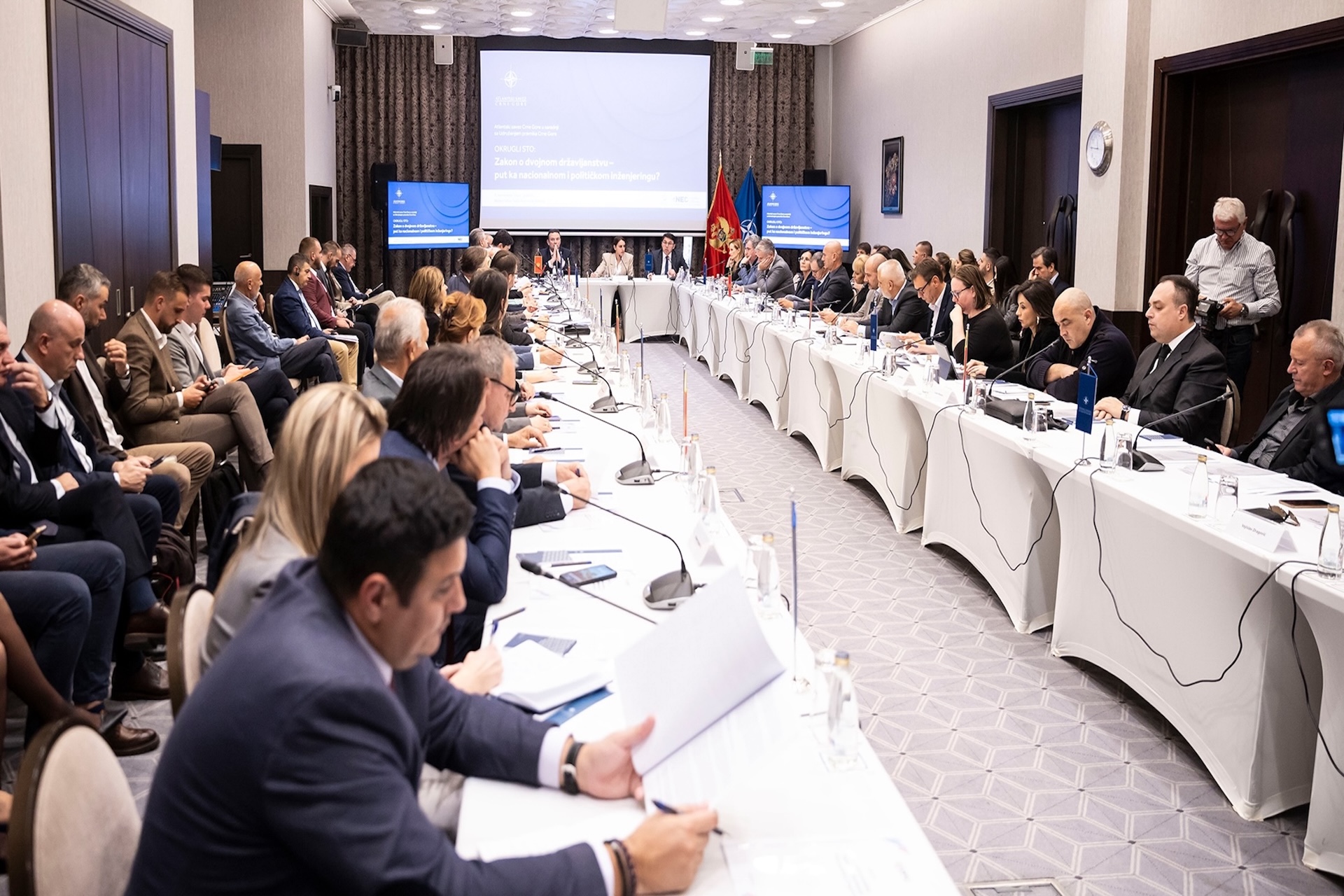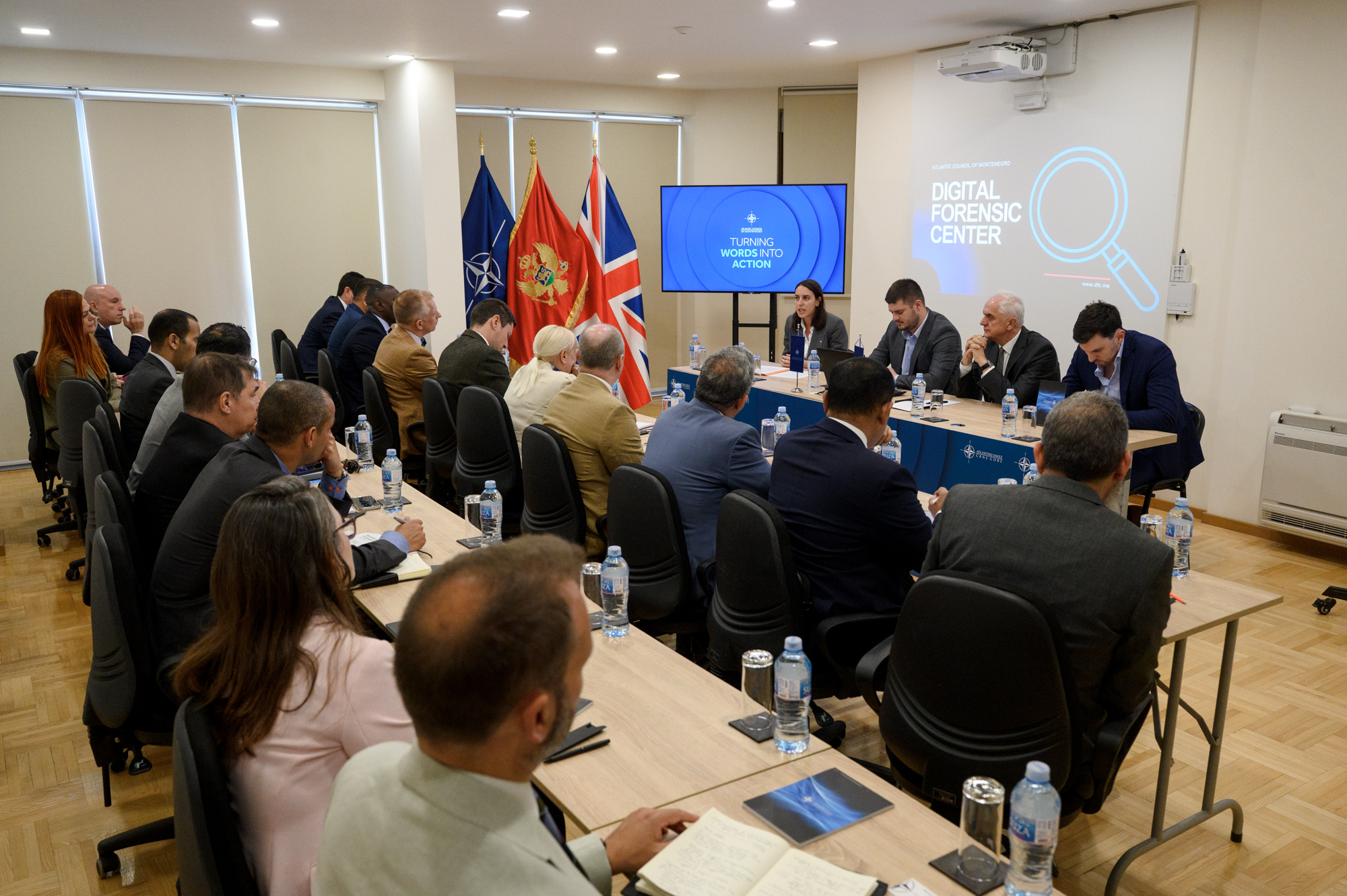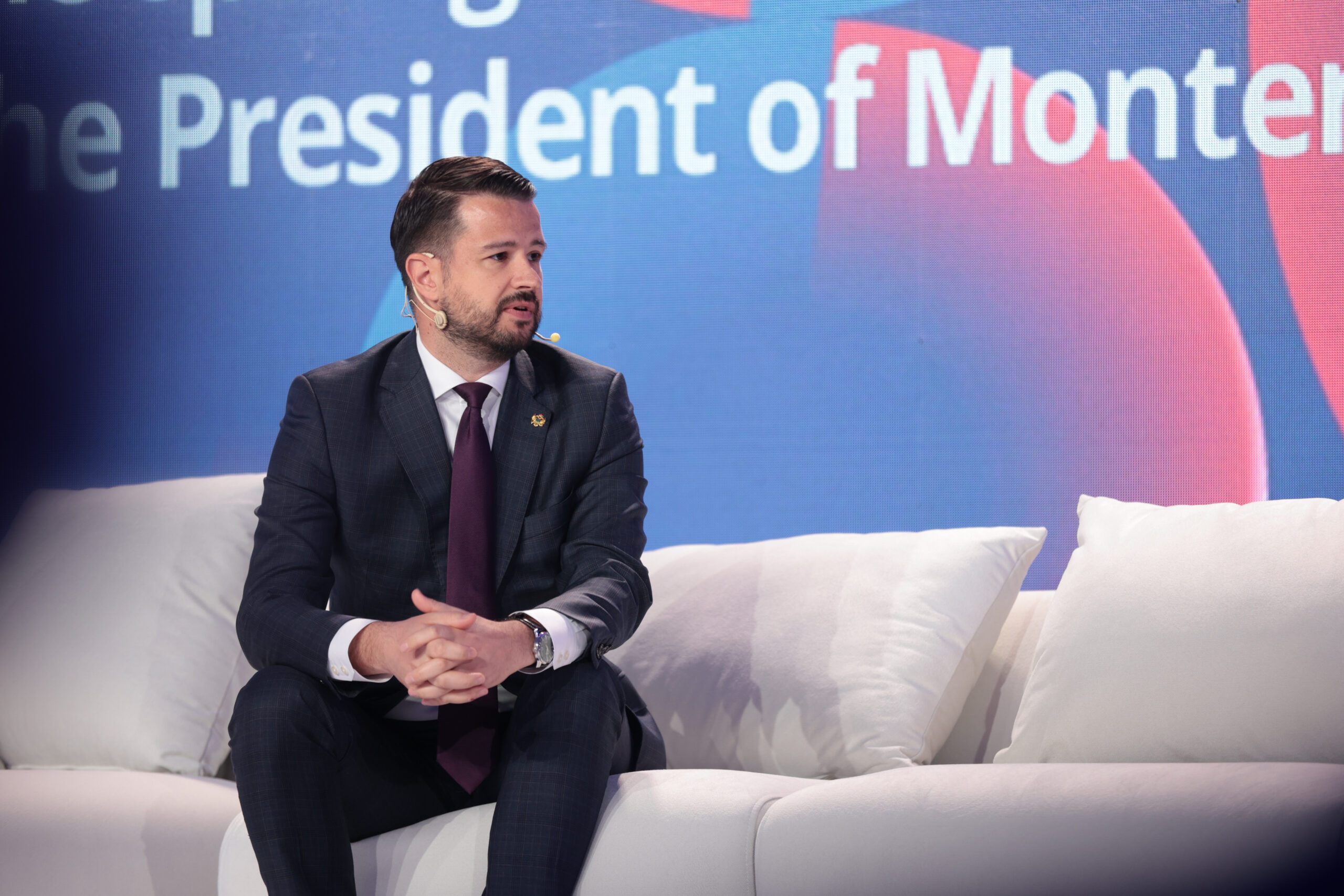On November 7, 2024, the Atlantic Council of Montenegro, in cooperation with the Association of Lawyers of Montenegro, organized a roundtable titled “The Law on Dual Citizenship – A Path to National and Political Engineering?”
The roundtable brought together over 90 participants, including a large number of prominent lawyers, sociologists, political analysts, security experts, representatives of political parties, international organizations, the diplomatic corps, the academic community, the NGO sector, and the media.
The issue of regulating citizenship is highly complex, primarily due to its public-law nature, as it represents the link between the state and the individual, from which arise corresponding rights and obligations established by law. Citizenship is, above all, a feature of state sovereignty, i.e., a component of the exercise of state authority. Provisions on citizenship, along with those on national territory and voting rights, not only signify but also constitute an element of constitutional determination of a state’s sovereignty.
The significance and sensitivity of regulating citizenship, particularly dual citizenship, lie in the fact that it raises a highly complex set of issues related to employment in state institutions, property matters, tax treatment, military service, and the right to exercise both active and passive voting rights.
The organization of this event was significant, as it addresses an initiative from part of the parliamentary majority, which, if this law were adopted, would have far-reaching consequences for Montenegrin society, national identity, political stability, and Montenegro’s international relations.
Since this is one of the first public events to open this topic, the Atlantic Council of Montenegro and the Association of Lawyers of Montenegro have set the framework for a dialogue that not only is necessary but essential for the involvement of a broader professional and general public.
The low level of transparency and openness that has characterized the adoption process of certain legal solutions in the recent past will not and cannot help clarify the legal, economic, security, political, and social aspects of the impact of dual citizenship on the political and legal order of our country.
As an issue that, in countries like Montenegro—young and small states with ethnic communities that have strong ties to neighboring countries—laws such as this on dual citizenship require calm discussion, clear and unambiguous conclusions, and alignment with international norms and relevant practices.
To address key dilemmas and help build socio-political cohesion, we present the following conclusions:
- 1. Any decision regarding amendments to citizenship legislation on dual citizenship must have indisputable constitutional and legal grounds and be the result of socio-political consensus;
- 1. Any unilateral decision to amend citizenship legislation without a thorough and comprehensive assessment of demographic, political, social, and security impacts could have far-reaching negative consequences for the Montenegrin social community as a whole;
- 1. It is necessary to ensure that the decision on whether a particular model for implementing dual citizenship will be adopted is transparent and publicly accessible, allowing it to be reviewed by all relevant socio-political actors;
- 1. The Parliamentary Committee for Comprehensive Electoral Legislation Reform should carefully monitor the entire process of addressing this issue, particularly concerning the realization of voting rights under Article 45 of the Constitution of Montenegro. Therefore, no legal text or provision within a law that directly or indirectly regulates and develops the field of citizenship should be considered without the participation of this Committee, nor should it be enacted by decision-makers with hidden political motives intended to implement a form of ethnic, political, and electoral engineering;
- 1. Decision-making must take into account the implications of introducing dual citizenship on national security, particularly concerning the potential for foreign interference, control over security institutions, NATO and EU membership, and the loyalty of citizens to the state.
- 1. The European Union, the United States, as well as OSCE, ODIHR, and other relevant international organizations operating in the Western Balkans, must become more actively involved in examining the issue of potential dual citizenship and all other matters that may have impact and consequences on the voter register and electoral process.









